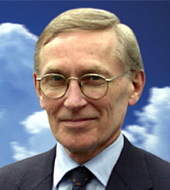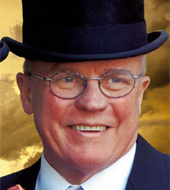Originally published in November-December 2004 icon
To continue the debate, we asked three of our icon’s icons, plus Angela and Neil Dickson of SDRT, to comment on Chris Woollams’ article.

Tony Howell
Professor of Cancer Prevention Christie Hospital, Manchester
"Chris is right in that there are a number of cancers where chemotherapy is curative and a number where it isn’t but where we don’t have anything else, so it’s used a bit too much.
My other major point is that chemotherapy is subject to clinical trials and the community has done a large number of them. Giving up on the science of what works and what doesn’t work is bad news and I think that this is what Chris is advocating. For example the idea that Beta Carotene would be good for you is reversed as soon as it goes into clinical trials where it shows that it is associated with an increased death rate in smokers.
There’s another overview of vitamins reported in The Lancet. It’s not the greatest overview and another one needs to be done. But what it finds is that vitamin supplements, if anything, may be associated with a small increase in death rates. So without the appropriate science we may be harming people if we follow this path. I’m not standing on a plinth but I am saying ’don’t run away from science’.
I have the greatest sympathy with a number of things Chris says, but I have a total lack of sympathy with him saying that one should use intuition and that science doesn’t work. It’s not good enough for people as, for instance, the case of HRT demonstrates. HRT is thought to be good for you but randomised trials find that it’s on the whole bad for you. Science tells you what’s really happening; a hunch does not and you can do an enormous amount of harm. I don’t feel I represent the profession in saying this, but I do feel I represent science.
As regards the MD Anderson view that all the exciting developments in cancer are coming in areas other than chemotherapy, I’d say that the exciting developments are not as exciting as people say. New developments are not as good as the hype, nor is complementary medicine as good as the hype - and both sides DO hype. People who report the clinical science say ’Great new drug. It does this or that’ and then you find that perhaps it gives three or four months of extra life. You can’t dismiss these few extra months for the person on the ground - provided they are not gained at too great a cost. But these stories are hyped because getting money in for research depends on making noises, and we all want a good story. I understand totally Chris’s fury at the over hype of standard medicine, but I am totally against a retreat from science."

Professor Paul Workman
Chairman and Director of Cancer Research UK Centre for Cancer Theraputics
"The first and most important thing to say is that I have very great sympathy for Chris’s very difficult and unfortunate circumstances, and my thoughts are with him, his daughter, of course, and the rest of their family and friends. I can understand and empathise with the strong feelings behind this piece, but don’t think it is appropriate to get into a detailed critique of it at such a time. We would all truly like cancer treatments to be more effective and less toxic than most of the current ones. Many of the approaches that we are now working on at the Cancer Research UK Centre for Cancer Therapeutics (see icon’s icon on Page 26) are aimed at hitting molecular targets that should give a selective effect in cancer versus normal cells. Several of the new drugs coming through do show real promise. Gleevec is very effective in chronic myeloid leukaemia, through inhibition of the BRC-ABL kinase. Iressa is producing strong effects in patients with lung cancer, that have a partiuclar EGF receptor mutation. We have to learn how to use the new drugs better, but I think the prospects are very exciting.
Chris’s comments are largely directed at the type of cytotoxic chemotherapy that was developed at a time when we just did not have the information we now do about the precise molecular abnormalities in cancer. This information now allows us to design much more specific ’molecular therapeutics’.
As far as complementary medicine is concerned, I feel we need to be open to all approaches but, at the same time, it is important that all treatments are subject to rigorous clinical trial.
I think that any comments on the clinical aspects of Chris’s piece should properly came from clinicians who are much closer to the clinical situation than I am.
Once again, our sympathies are with Chris, Catherine, family and friends."

Professor Trevor Powles CBE
Lead Clinician at Parkside Oncology
"This is a very personal piece and my heart bleeds for Chris, Catherine and the family. I’m overwhelmed by the terrible position that he is in, and think that it’s very understandable for him to write such a piece at this time.
I can’t comment on many of the points he has raised because of the personal nature of the piece but there are two main issues that I agree broadly with:
Firstly, that complementary and traditional medicines need to work together.
Secondly, we do need caution with the drug development programme. A lot of good comes out of it, and we must work hard to minimise the bad.
I feel that a traditional approach of medical research and drug development are extremely important for the care of the patients. At the same time we need to be looking carefully at the broader picture and how to integrate with complementary medicine."
Angela and Neil Dickson
Founder of SDRT (Samantha Dickson Research Trust for Brain Tumours)
"Our thoughts and support are with Chris, his family, and most of all Catherine, as they continue their fight against brain cancer.
Their fight has already extended Catherine’s original prognosis of six months to 3 1/2 years. This has not been achieved just by surgery, radiotherapy and chemotherapy as the medical profession would let us believe, but by Chris and his family’s determination to look at all other options.
Success in dealing with cancer over the last two decades ignores the fact that little has been achieved with brain cancer. No wonder! Research into the disease in this country, and also in the rest of the world, is totally inadequate. This is why the medical profession continues to offer chemotherapy as a frontline treatment. After surgery and radiotherapy, they have nothing else to offer. This is despite the fact that chemotherapy for brain cancer is only beneficial in a limited number of cases. This leaves the medical profession in a very difficult position as, with no other options, even with limited effect, it is something they can offer the patient. The problem with chemotherapy is its toxicity and given its limited success with brain cancer treatment it should not be offered as a ’matter of course’.
We know from our own research that PVC is not successful for brain tumour patients and that it debilitates the immune system. Despite this, most of the specialists will still only prescribe Temozolomide after PVC has failed! Why bother with PVC when it makes the patient so ill? Unfortunately, the reason that chemotherapy is prescribed is that doctors are under pressure to offer something to the patient. They tend to discredit ’alternative treatments’ when in fact they do not have enough knowledge of them. What they do have, however, is financial backing from the pharmaceutical companies to keep testing their toxic drugs.
During our daughter Samantha’s illness we, like many others, sought alternative treatment - in our case from Canada. At first we were told, like many other patients, that there was no cure (which we already knew) and that we were chasing rainbows.
However we (and later her specialist nurse) agreed that the intravenous Vitamin C infusions she received very much helped Samantha and gave her an additional year of quality life during which time we managed to take her to Barbados for a holiday.
Again, we knew it wasn’t a cure, but every additional day was precious. The treatment was extremely expensive and was another reason why we set up the charity - people are coping with enough during their illness, without needing to seek expensive treatment from abroad. If chemotherapy is good, why do so many patients seek alternative treatment when the chemotherapy has failed to extend their life beyond only a few extra months?
What is needed is much greater levels of research in the laboratory, and into clinical trials, and a less cynical view of alternative treatments. Dr Bali Rooprai’s research into citrus flavonoids is one project we have on hold for sponsorship by the SDRT."